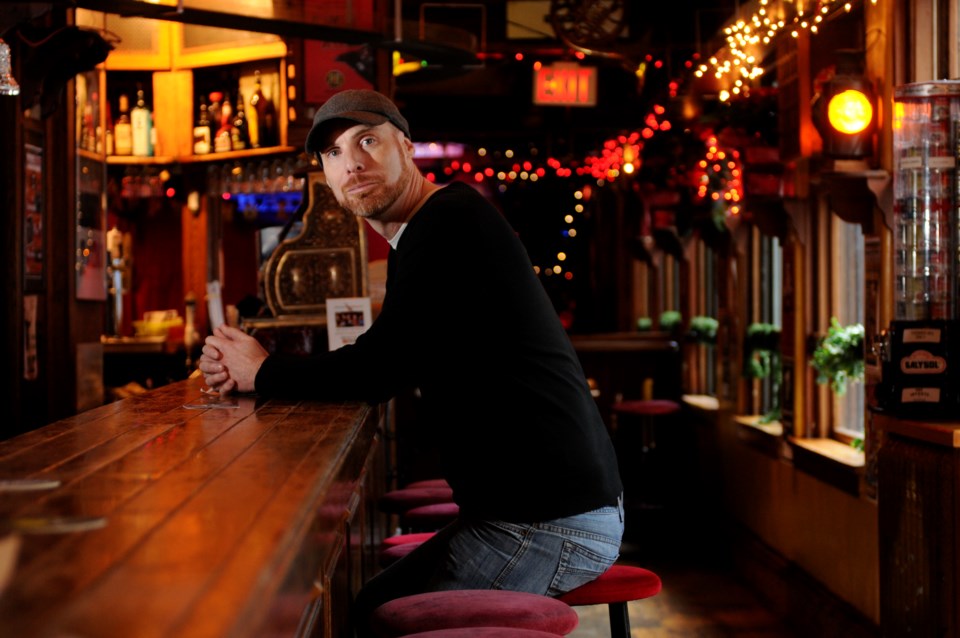The owner of the iconic Railway Club, which unexpectedly closed its doors last month, is not predicting a rosy future for similar-sized cultural venues as the city continues to grapple with an affordability crunch.
Steve Silman closed the Railway March 29 after he couldn’t find a buyer for the business or keep up with the mounting costs to operate the popular club at Dunsmuir and Seymour, which served as a live music venue that attracted the likes of the Tragically Hip, Barenaked Ladies and k.d. lang.
“It's hard to pin down the effect but there will certainly be one, and not in a good way,” he said in an email to the Courier, when asked what the closing of his club does to the cultural fabric of the city. “I think as the cost of doing business and living in Vancouver continues to rise, we will see the trend of more closures and fewer small businesses continue. I also think we'll see even more and larger new developments as owners look for a way to cover the cost of the land [that] buildings in the city are sitting on.”
Silman said he’s read Facebook posts from people saying they can’t afford to regularly visit places such as the Railway because of the costs to live in Vancouver. He said he noticed people were spending less at the Railway than they were five years ago.
Andrey Pavlov, a Simon Fraser University real estate finance professor, was a patron of the Railway and fears the customer base for such venues is dwindling because people in their 20s and 30s are either moving out of Vancouver, or can’t afford to live in the city.
“You almost don’t need research for that,” said the 46-year-old Pavlov, who rents a laneway house in Kitsilano. “I mean it’s impossible for someone in that age range to start a family in Vancouver. So they have to move.”
In 2013, Vancouver saw a net loss of 1,571 residents in the 20 to 30 age group, an increase of 770 over the previous year, according to a report released by Vancity credit union in May 2015. The report also noted that between 2001 and 2014, the cost of housing in Metro Vancouver increased by 63 per cent while salaries only rose by 36.2 per cent.
Pavlov said the influx of foreign investors to Vancouver, along with older homeowners who remain in the city, are not likely to be customers of such venues as the Railway.
“They have different interests than a place like the Railway Club,” he said. “I’ve been to the Railway Club many times and the audience is pretty young. It’s exactly the type of people who are being squeezed out of Vancouver. They’re being squeezed by stagnant wages and few employment opportunities, while at the same time, there are rising rents and property values.”
Although known as a popular music venue, the Railway also hosted theatre events, comedy shows and was a meeting spot for business groups and once home to an informal press club for journalists. The Railway originally opened in 1931 as a private club for railway construction workers.
Vision Vancouver Coun. Heather Deal, who also frequented the Railway, said she was “gutted” by the closing of the club but believes Vancouver still has a vibrant arts and culture scene.
Deal disagrees Vancouver’s smaller cultural venues are heading for a demise, saying she didn’t “want to paint it with that broad brush.” She pointed to the success of the Rickshaw, the Imperial, the Rio Theatre and Fox Cabaret, all popular venues with young people.
“There is a lively, lively place for younger people and for entertainment and for live music and rowdiness and all those things,” she said, noting the city also introduced an initiative that allows all types of venues, including record stores, to host pop-up events. “But, of course, affordability is a challenge for youth, for people just getting out of school — we’re well aware of that.”
Deal said city council continues to search for ways to make the city more affordable, including deals with developers to build rental housing, but needs investment from senior governments and new rules to cool Vancouver’s hot housing market.
“We have used every tool we have and we are continually looking for more,” she said. “We’re getting some signs of hope from the federal government now but the provincial government has simply turned a blind eye to this issue.”
Pavlov, meanwhile, said he’s not sure he will remain in Vancouver.
“I have a pretty good income, so I can afford to stay in the city even at these prices,” he said. “But the problem is, all of our friends are moving out. So I want my kids to play with other kids, right. But they’re moving out because they can’t afford to live here. I don’t know if I want to stay if enough people leave.”
@Howellings



